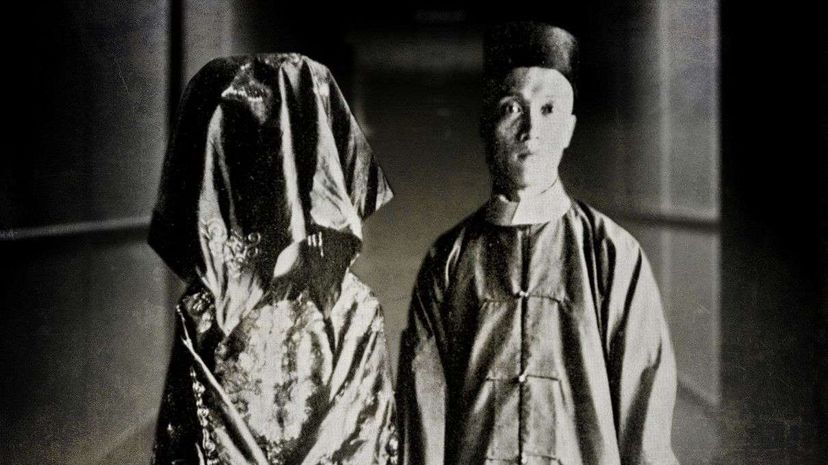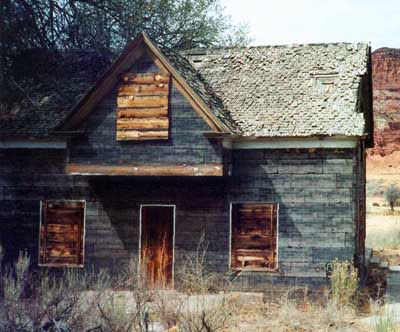
Ghosts typically devote their afterlife to hauntings, but what about the ones that decide to settle down and marry instead?
Necromantic nuptials occur more than you might think, especially in parts of China where the rite of mínghūn may even wed the living to the dead.
Advertisement
It's helpful to think of so-called "ghost weddings" as more like funerals than anything else. It's not the dead, but the living, that take comfort in bereavement rituals. Chinese traditions, however, place a particular focus on departed family members.
Grounded in Taoist philosophy and Confucian family values, xiào, or filial piety, underscores the structure of the traditional Chinese family. The spirit of a person is undying but, unlike in many Western traditions, the eternal soul of an individual remains tethered to the world of the living. Deceased family members are to be venerated, their desires addressed and their afterlife favors curried, lest family order become unbalanced.
In Diana Martin's 1991 article "Chinese Ghost Marriage," she compares this view to the Chinese notion of yuan, or structural completeness. The family consists of father and mother, sons who marry and bring women and offspring into the home, and daughters destined for assimilation into another family. When death interrupts this continued branching of the family tree, the spirits of the departed must be placated. After all, a deceased, unwed son or daughter is incomplete.
And so, for centuries, ghosts have wed in China. A ceremony takes place, gifts are exchanged and wooden ancestor tablets may stand in for the deceased bride and/or groom. The earliest versions of the rite simply entailed burying a deceased, unwed woman in the tomb of a deceased bachelor.
Over time, particularly in rural areas, the practice broadened to permit the marriage of ghosts to living spouses. Gender ratio discrepancies, childbirth policies and the continued mass-exodus of young people from rural areas to China's booming urban centers may have further exacerbated the situation. Factor in high-fatality rural jobs, such as those in the mining industry, and you can easily imagine these deceased, unmarried sons — and the desire of bereaved parents to set things right.
Wherever there is human desire, of course, there's the potential for exploitation. In the Northern province of Shaanxi, police have cracked down on grave robbers who exhume female corpses in order to sell the dead as potential brides to the parents of deceased bachelors. In a BBC News report, Shanghai University's Huang Jingchun said that the price tag for such black-market brides has skyrocketed in recent years, from 30,000-50,000 yuan ($4,500-$7,500) in 2008 to 100,000 yuan, or nearly $15,000 in 2016. Worse yet, Shaanxi police charged a man in April for the alleged murder of two women with mental disabilities in order to sell their corpses.
Such grim cases are rare, however, and they're certainly not the only crimes committed in the name of love and cultural marriage expectations. According to a 2013 systematic review of intimate partner homicide, at least one in seven homicides globally — and more than a third of female homicides overall — are perpetrated by an intimate partner.
But there are less depressing ways to ground the practice of Chinese ghost weddings within a global framework. The practice has spread to other parts of Asia and even finds parallels in Western traditions. For example, following a deadly 1959 dam collapse, France adapted its legal code to allow its president to permit marriage between the living and the dead, so as to allow bereaved individuals to wed deceased fiancées. Meanwhile, the Church of Jesus Christ of Latter-day Saints maintains a doctrine of Celestial Marriage, which extends the bonds of marriage beyond the grave and through all eternity. With such an emphasis on the afterlife, and such additional doctrines as baptism for the dead, it's not surprising that deceased individuals have been wed, too.
Marriage and death are serious matters no matter where you go. Ghost marriages are just another example of our continuing efforts to square the ideal shape of life with the tragic shape it sometimes takes.
Advertisement
